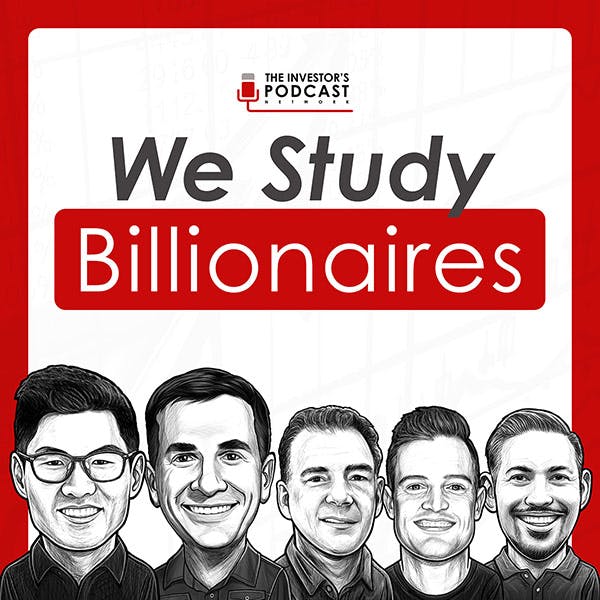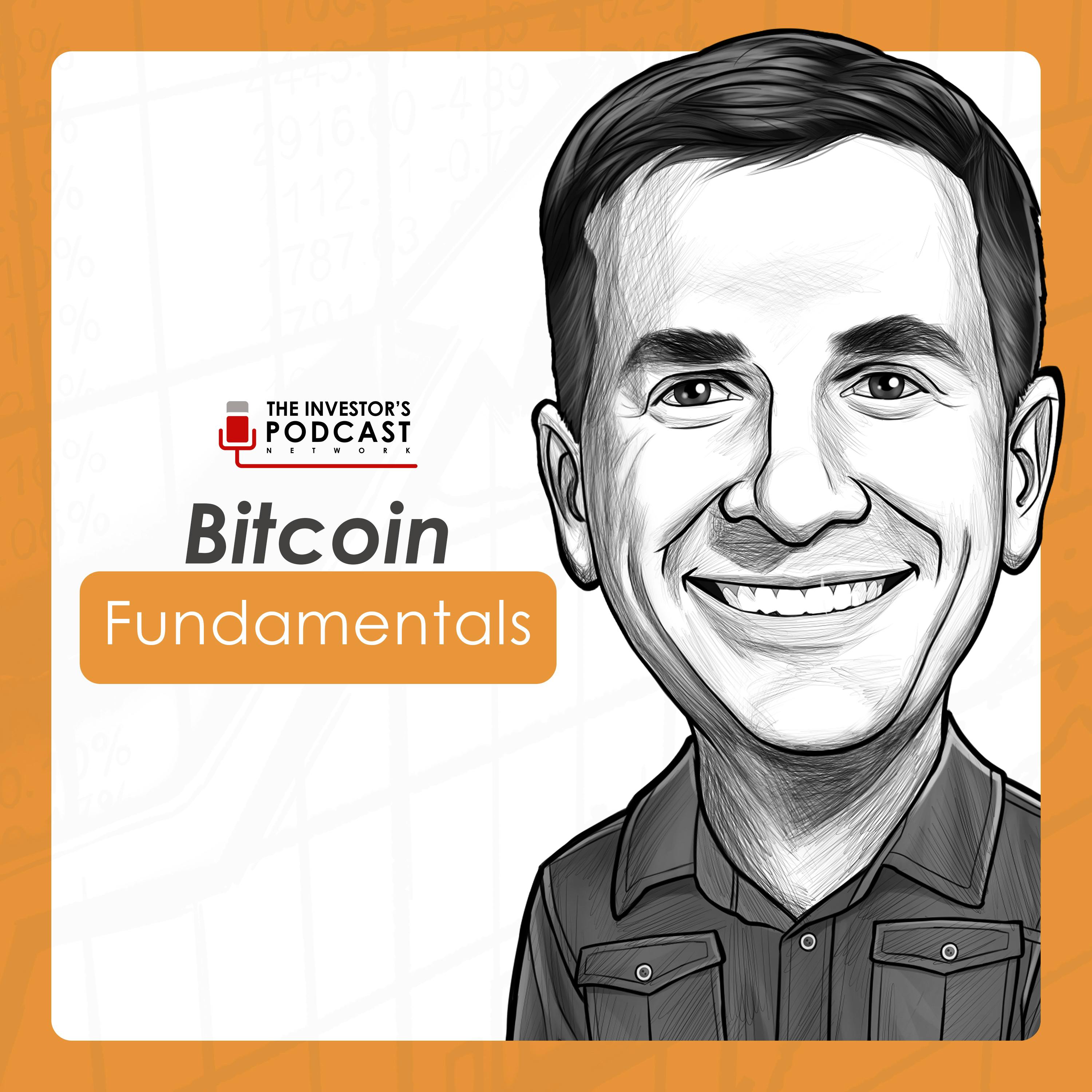
October 20, 2024 • 1hr 56min
RWH050: The Intelligent Investor w/ Jason Zweig
We Study Billionaires - The Investor’s Podcast Network

Key Takeaways
- The Intelligent Investor by Benjamin Graham is considered by many, including Warren Buffett, to be "by far the best book on investing ever written"
- Jason Zweig has revised and updated the book for its 75th anniversary edition, adding new commentary to make Graham's timeless principles relevant for today's investors
- Graham's four core principles that can help investors succeed:
- Stocks represent ownership in real businesses, not just pieces of paper
- Distinguish between investing (based on thorough analysis) and speculating (betting on price movements)
- Use the "Mr. Market" metaphor to take advantage of market volatility
- Maintain a "margin of safety" when investing
- Individual investors can have advantages over professionals if they play their own long-term, low-cost game rather than trying to outperform in the short-term
- Index funds should form the base of most portfolios, providing low-cost diversification
- Identifying "superstocks" that dramatically outperform is extremely difficult - most professional fund managers fail to beat the market over time
- Graham's most successful investment (GEICO) violated many of his own principles, highlighting the importance of flexibility
- Key life lessons from Graham, Buffett and Munger include intellectual humility, generosity, and focusing on more than just making money
Introduction
In this episode, William Green interviews Jason Zweig, who writes the Intelligent Investor column for the Wall Street Journal. They discuss Zweig's newly revised 75th anniversary edition of Benjamin Graham's investing classic The Intelligent Investor. Zweig explains why Graham's core principles remain vitally important for today's investors and shares insights he's gained from studying and interviewing legendary investors like Warren Buffett and Charlie Munger.
Topics Discussed
Revising The Intelligent Investor (3:33)
Zweig describes the process of revising and updating Graham's book as both an "honor and burden". He approached it by:
- Printing out Graham's original chapters but none of his previous commentary
- Starting from scratch to approach the material freshly
- Drawing on decades of experience to provide new context and examples
He aimed to breathe new life into the classic text while preserving Graham's timeless wisdom. As Zweig notes: "The principles all remain valid in my opinion. He, in fact, may have become more valid over time, but it's quite a responsibility."
Graham's Core Investing Principles (11:06)
Zweig outlines four key principles from Graham that can help investors succeed:
- Stocks represent ownership in real businesses - Not just pieces of paper or blips on a screen
- Distinguish investing from speculating - Investing is based on thorough analysis, speculating is betting on price movements
- Use the "Mr. Market" metaphor - Take advantage of market volatility rather than being controlled by it
- Maintain a "margin of safety" - Don't overpay, build in a cushion against errors
On the importance of viewing stocks as businesses, Zweig states: "If you are going to differentiate yourself from other investors out there, the most important thing to do is to be different and to stop thinking like everybody else."
Market Volatility and Mr. Market (25:24)
Zweig uses the example of a sudden plunge in Japanese stocks in August 2023 to illustrate the craziness of markets and the value of Graham's "Mr. Market" metaphor. He notes there was no rational explanation for the 12% drop followed by a 10% rebound the next day.
Graham's metaphor encourages investors to take advantage of Mr. Market's mood swings rather than being controlled by them. As Zweig explains: "When all was said and done, it was as if absolutely nothing had happened. That's just the way it ends."
The Most Important Paragraph on Investing (27:56)
Zweig highlights what he considers "the single most important paragraph about investing ever written" from Graham:
"The true investor scarcely ever is forced to sell his shares, and at all other times he is free to disregard the current price quotation. He need pay attention to it and act upon it only to the extent that it suits his book and no more."
This encapsulates Graham's advice to ignore short-term market noise and focus on long-term value. Zweig explains its importance: "Graham is really saying is the only way to win the game is to stop playing. You have to play your own game."
Advantages of Individual Investors (32:42)
Zweig discusses how Warren Buffett and Bill Miller profit from being "inversely emotional" - getting excited by others' pessimism and cautious about others' enthusiasm. He argues individual investors can have significant advantages over professionals if they:
- Tune out Wall Street's short-term focused propaganda
- Take a long-term perspective
- Keep costs low through infrequent trading
- Make concentrated bets with a portion of their portfolio
As Zweig notes: "Those are all really powerful advantages that are a total luxury for most professional fund managers nowadays. They would kill to have those advantages."
Defensive vs Enterprising Investors (39:15)
Zweig explains Graham's important distinction between defensive and enterprising investors:
- Defensive investors don't want to spend significant time and effort on investing
- Enterprising investors are willing to put in substantial work to try to beat the market
He argues most people should be defensive investors, using low-cost index funds as the core of their portfolio. Trying to be enterprising when you're not equipped for it often leads to poor results.
The Importance of Margin of Safety (44:40)
Zweig emphasizes Graham's concept of margin of safety as "the central concept of investment." This means:
- Not overpaying for assets
- Building in a cushion against errors in analysis
- Providing a buffer against market volatility
He notes that many investors in recent years ignored margin of safety, leading to major losses in speculative assets.
The Case for Index Funds (48:40)
Zweig argues that low-cost index funds should form the base of most investors' portfolios because:
- They provide broad diversification at minimal cost
- Most active managers fail to outperform over time
- They free up time and mental energy
He suggests using index funds for the core portfolio, then potentially making some concentrated bets with a smaller portion for those inclined to try to beat the market.
The Challenge of Picking "Superstocks" (52:52)
Zweig discusses research showing that only a tiny minority of stocks drive the bulk of market returns over time. While some argue this justifies trying to pick these rare winners, Zweig cautions:
- It's extremely difficult to identify these stocks in advance
- Most professional managers fail at this task
- The odds are stacked against individual stock pickers
Why Most Fund Managers Underperform (1:00:21)
Zweig explains several reasons why the vast majority of professional fund managers fail to beat the market over time:
- High costs from frequent trading
- Pressure to stay fully invested even when opportunities are scarce
- Career risk leading to herding behavior
- Difficulty scaling successful strategies as funds grow larger
Graham's Most Successful Investment (1:14:33)
Zweig discusses how Graham's most profitable investment (GEICO) actually violated many of his own investing principles:
- It was a large position size (about 20% of the portfolio)
- It wasn't particularly cheap by Graham's standards
- Graham held it for decades rather than selling when it became fully valued
This highlights the importance of flexibility and not being overly rigid in applying investment principles.
Life Lessons from Graham, Buffett and Munger (1:33:01)
Zweig shares some key life lessons he's learned from studying these legendary investors:
- Intellectual humility - Recognizing the limits of our knowledge and ability to predict the future
- Generosity with knowledge - Willingness to teach and share wisdom with others
- Focus beyond just making money - Cultivating other interests and relationships
- Lifelong learning - Constantly reading and expanding one's knowledge
Conclusion
Jason Zweig's revised edition of The Intelligent Investor brings Benjamin Graham's timeless wisdom to a new generation of investors. While markets and technologies have changed dramatically since Graham's time, his core principles of focusing on business fundamentals, maintaining emotional discipline, and insisting on a margin of safety remain as relevant as ever. For most investors, combining Graham's teachings with the benefits of low-cost index funds is likely to produce the best long-term results.









